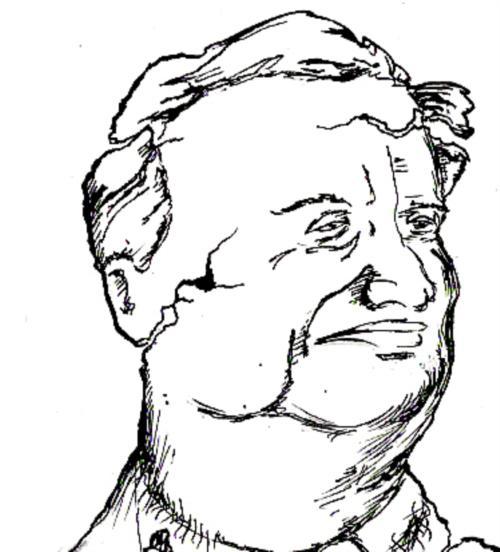
News
Summers Will Not Finish Semester of Teaching as Harvard Investigates Epstein Ties

News
Harvard College Students Report Favoring Divestment from Israel in HUA Survey

News
‘He Should Resign’: Harvard Undergrads Take Hard Line Against Summers Over Epstein Scandal

News
Harvard To Launch New Investigation Into Epstein’s Ties to Summers, Other University Affiliates

News
Harvard Students To Vote on Divestment From Israel in Inaugural HUA Election Survey
The Case for Larry
For Treasury secretary, Summers would be a strong choice

With the financial crisis continuing to threaten the nation’s economy, the selection of a nominee for Secretary of the Treasury might very well be the most important cabinet appointment facing Barack Obama as he prepares for his first term in office. The Obama administration will need a Treasury secretary who possesses the creativity, economic acumen, and leadership experience to propose and effect bold and innovative economic policies that will help the U.S. avoid a deep economic recession.
Given the urgent need for a candidate with these strengths, it is disappointing that Eliot University Professor Lawrence H. Summers—one of the leading contenders for the Treasury appointment—is now encountering opposition from some quarters. Contrary to an undeserved reputation stemming from misguided impressions and misleading media reports surrounding his resignation from Harvard’s presidency, Summers is anything but a misogynist or a calculating bureaucrat. He is, rather, a brilliant economist and an effective leader whose liberal credentials are beyond reproach. Summers would be an excellent choice for Secretary of the Treasury, and we are confident that Obama will give this accomplished economist a fair consideration that extends beyond the few isolated mistakes Summers has made during his career.
Summers’s tenure as University President has been closely—and in many cases, unfairly—scrutinized in recent days. At a conference in January of 2005, Summers posited innate aptitude and proclivity as one hypothesis for why women are underrepresented in tenured faculty positions in engineering and the sciences. Sadly, these unfortunate remarks almost completely eclipsed the many positive aspects of his presidency in national media reports. Summers’ remarks were unrefined and excessively blunt, but these were errors for which he has repeatedly and publicly apologized. His very reason for speaking at the conference was to provoke discussion in the academic community on how to provide women with equal opportunity to hold senior faculty positions in the sciences. His intentions were genuine, and his approach—to address a pressing issue with proactive analysis and creative solutions rather than idle talk and reliance on old thinking—was ideal, if poorly executed in this isolated case.
His regrettable and oft-publicized remark aside, Summers applied the same approach of intellectual provocation throughout his stewardship of the University, and with great success. Under his leadership, Harvard’s endowment continued to flourish, the Faculty of Arts and Sciences commenced a full review of the obsolete Core Curriculum, and the revolutionary Harvard Financial Aid Initiative was conceived. Above all, Summers restored the University’s focus on the undergraduate community, a major shift in culture and policy that continues to benefit undergraduates today. It would be a mistake to allow all that Summers achieved for Harvard to be diminished by his presidency’s comparatively short duration or a few ill-advised remarks he delivered at a single conference.
More importantly, it is precisely Summers’s style of intellectual provocation that is needed in Washington today. The U.S. needs somebody at the helm of its economic policy who will ask the right questions and encourage those around him to offer original, creative thinking. Throughout his career, Summers has more than proven that he is ready and able to do both. The fact that his career has already been marked by such brilliance and achievement makes his case all the more compelling. He is a winner of the prestigious John Bates Clark Medal, a former Chief Economist of the World Bank, and a Treasury secretary under Bill Clinton. Far from requiring on-the-job training, Summers could begin guiding economic policy from his first day in office, a point that cannot be undervalued in this time of urgent economic peril.
Like everyone else, Summers is not perfect. His manner can be brusque, and he does have something of a proclivity for saying the very wrong thing at the very wrong time. In short, he is not the consummate politician. But this is not the time to allow the narrative of one of our generation’s most talented economists to be dominated by a handful professional gaffes; the stakes are simply too high. The U.S. needs an individual of exceptional ability to serve as Secretary of the Treasury, and we fully trust that Obama, regardless of whom he ultimately nominates, will give each of the contenders for the post fair and comprehensive consideration. We hope that political observers, the media, and the American public do the same.
Want to keep up with breaking news? Subscribe to our email newsletter.
